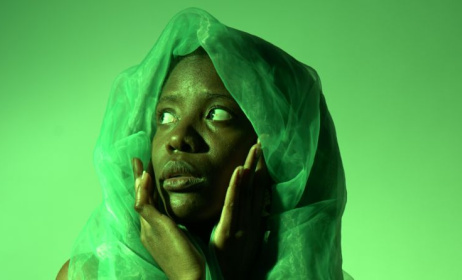Kenya: MCSK promises era of openness and transparency
Kenya’s largest and oldest collective management organisation (CMO), the Music Copyright Society of Kenya (MCSK), has announced it has entered a new era of openness and transparency.
 From right: MCSK Chairman Lazarus Muli, Kirinyaga County Women Rep Njeri Maina and musician Kasolo during an event to mark the disbursement of royalties by the MCSK in Nairobi on 25 January 2024.
From right: MCSK Chairman Lazarus Muli, Kirinyaga County Women Rep Njeri Maina and musician Kasolo during an event to mark the disbursement of royalties by the MCSK in Nairobi on 25 January 2024.
The MCSK, which distributed Ksh20 million (about $125 000) for the period 1 January 2023 to 31 December 2023 on 25 January, said long gone are “the days of whining among its membership due to low distributions despite heavy airplay by the media, the transport and hospitality industry.”
“In 2024, we are looking forward to greater support from the government, better engagement with members and a new chapter of openness and transparency,” the MSCK CEO Ezekiel Mutua said.
The society has requested a closer collaboration with the Ministry of Interior so that its officers can conduct collections from users in a safer and more efficient manner.
According to the MCSK, CMOs can collect over Ksh2 billion annually, allowing for better distribution to its members. Further, the society expects better collections in the coming months after the gazettement of new tariffs and the introduction of the blank tape levy, also referred to as the remuneration for private copying, which came into force in September 2023 but was suspended following a legal suit against its implementation. The MCSK currently estimates that only about 15% of users are compliant.
Further, the MCSK says its members will soon be able to monitor the performance of their works following the deployment of new technology which will also enable a more ‘scientific’ distribution model as the society continues to use a combination of general and scientific contributions currently. Currently, the society says it is in the process of evaluation by the International Confederation of Societies of Authors and Composers (CISAC), which aims to protect the rights and promote the interests of creators worldwide, as it seeks to rejoin the global body.
In its latest disbursement, the society reports that it has paid its highest-grossing member Ksh757 092, whilst the lowest paid member will receive an estimate of Ksh5 000.
Members have also been encouraged to continue updating their works and catalogues regularly with the secretariat as the board extends the current distribution period by two months to 29 March to enable its members to access their royalties.
Over the years, many rightsholders have spoken out about their frustration with the way that the Kenyan royalty space is being managed. Collective rights management in Kenya has been marred by licence disputes, allegations of corruption and lack of transparency.
Related content:




































Comments
Log in or register to post comments